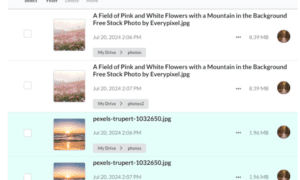As the seasons shift, your home’s heating, ventilation, and air conditioning (HVAC) system must adapt to meet changing weather conditions. From heating during winter’s chill to cooling during summer’s heat, your HVAC system works hard to maintain a comfortable indoor environment year-round. However, transitioning between seasons can place added stress on these systems, making preparation essential for optimal performance and efficiency. By following a set of seasonal best practices, you can ensure your HVAC system is ready to meet your needs.
The Importance of Seasonal HVAC Preparation
Seasonal transitions often lead to fluctuating temperatures, which can challenge even the most advanced HVAC systems. Proper preparation not only enhances comfort but also delivers significant benefits:
- Improved Efficiency: A well-maintained system runs more efficiently, reducing energy consumption and lowering utility bills.
- Extended Equipment Lifespan: Regular upkeep minimizes wear and tear, prolonging the life of your HVAC system.
- Consistent Comfort: Preparing your system ensures it can handle extreme temperatures, maintaining a steady indoor environment.
- Preventing Breakdowns: Routine maintenance reduces the risk of costly, unexpected repairs by identifying potential issues early.
- Enhanced Indoor Air Quality: Proper preparation can address issues like clogged filters or poor humidity control, leading to healthier indoor air.
Spring and Summer HVAC Preparation Tips
As temperatures rise, your HVAC system must shift its focus to cooling. Follow these steps to prepare for spring and summer:
- Inspect and Clean the Outdoor Unit:
- Remove debris, such as leaves and dirt, from around the condenser unit to ensure proper airflow.
- Gently clean the unit’s fins with a hose to remove dust and improve efficiency.
- Change Air Filters:
- Replace filters every 1-3 months to ensure optimal airflow and air quality.
- Clogged filters can force the system to work harder, increasing energy usage and wear.
- Test the Air Conditioner:
- Run the system before temperatures spike to ensure it cools effectively.
- Address any unusual noises, odors, or performance issues promptly.
- Seal and Insulate Ducts:
- Check for leaks or damage in ductwork that could cause cooled air to escape.
- Insulate ducts to prevent thermal loss and maintain consistent cooling.
- Check Refrigerant Levels:
- Low refrigerant levels can impair cooling efficiency and indicate potential leaks.
- Schedule a professional inspection to address this issue.
- Install a Programmable Thermostat:
- Upgrade to a smart thermostat to optimize cooling schedules and save energy during peak months.
- Clean Indoor Coils:
- Dust and debris can accumulate on indoor coils, reducing the system’s ability to cool effectively.
- Ensure Proper Ventilation:
- Open vents and ensure they’re unobstructed to allow even distribution of cool air throughout the home.
Fall and Winter HVAC Preparation Tips
As cooler weather approaches, your HVAC system transitions to heating mode. These steps will help you prepare for fall and winter:
- Inspect the Furnace:
- Clean and inspect the furnace to ensure it’s free of dust and debris.
- Replace the filter to promote efficient airflow.
- Test the Heating System:
- Turn on the heating system early to check for issues, such as weak airflow or uneven heating.
- Listen for unusual sounds that may indicate mechanical problems.
- Clean Vents and Registers:
- Vacuum vents and registers to remove dust and allergens that may have accumulated during warmer months.
- Inspect the Heat Exchanger:
- A professional inspection can identify cracks or damage in the heat exchanger, which could pose safety risks.
- Check Carbon Monoxide Detectors:
- Ensure detectors are functioning and replace batteries if necessary to protect your family from harmful gas leaks.
- Seal Windows and Doors:
- Apply weatherstripping or caulking to reduce drafts and minimize energy loss.
- Check Pilot Lights:
- For older systems with pilot lights, ensure they’re lit and functioning correctly.
- Inspect and Clean Radiators or Baseboard Heaters:
- Dust and debris can accumulate on these components, reducing their ability to provide even heat.
Year-Round Maintenance Practices
In addition to seasonal preparations, year-round maintenance is key to keeping your HVAC system in top shape:
- Schedule Professional Tune-Ups:
- Trusted experts like Nardco Heating & Air Conditioning can perform comprehensive inspections and maintenance to keep your system running efficiently.
- Regular tune-ups help identify potential problems before they escalate.
- Monitor Energy Bills:
- Sudden spikes in energy usage may indicate inefficiencies or issues with your HVAC system.
- Keep the Area Around Units Clear:
- Maintain at least two feet of clearance around indoor and outdoor units to allow for proper airflow.
- Inspect Ductwork:
- Leaky ducts can significantly impact efficiency and indoor comfort. Periodic inspections can catch and resolve these issues.
- Maintain Thermostat Settings:
- Set thermostats to energy-efficient levels when away from home to reduce unnecessary strain on the system.
The Role of HVAC Upgrades
Seasonal preparations provide an opportunity to evaluate your current HVAC system’s performance and consider upgrades:
- Replace Aging Equipment:
- Older systems may struggle to keep up with seasonal demands. Upgrading to a modern, energy-efficient system can enhance performance and reduce costs.
- Add Zoning Systems:
- Zoning allows you to control temperatures in different areas of your home, improving comfort and efficiency.
- Invest in Air Quality Enhancements:
- Integrate air purifiers, humidifiers, or dehumidifiers to maintain healthy indoor air quality year-round.
- Upgrade Thermostats:
- Smart thermostats provide better control over temperature settings and energy use, adapting to your preferences over time.
- Consider Renewable Energy Options:
- Solar-powered HVAC systems or geothermal heat pumps can provide sustainable alternatives for home heating and cooling.
- Incorporate Advanced Monitoring Systems:
- Smart HVAC monitoring tools can provide real-time data, alerting you to potential problems before they escalate.
DIY vs. Professional Maintenance
While homeowners can handle many HVAC preparation tasks, HVAC professionals are essential for thorough maintenance:
- DIY Tasks:
- Replacing filters, cleaning vents, and clearing debris from outdoor units are simple tasks most homeowners can perform.
- Professional Services:
- Nardco Heating & Air Conditioning offers expert inspections, repairs, and system optimization, ensuring your HVAC system is ready for any season.
Conclusion
Preparing your HVAC system for seasonal changes is essential to maintain comfort, efficiency, and reliability. By following these best practices and partnering with trusted professionals like Nardco Heating & Air Conditioning, you can enjoy seamless transitions between seasons and maximize the performance of your heating and cooling systems. With proper care and attention, your HVAC system will continue to keep your home comfortable year-round, providing peace of mind and energy savings that benefit both you and the environment.
Read More From Techbullion



































